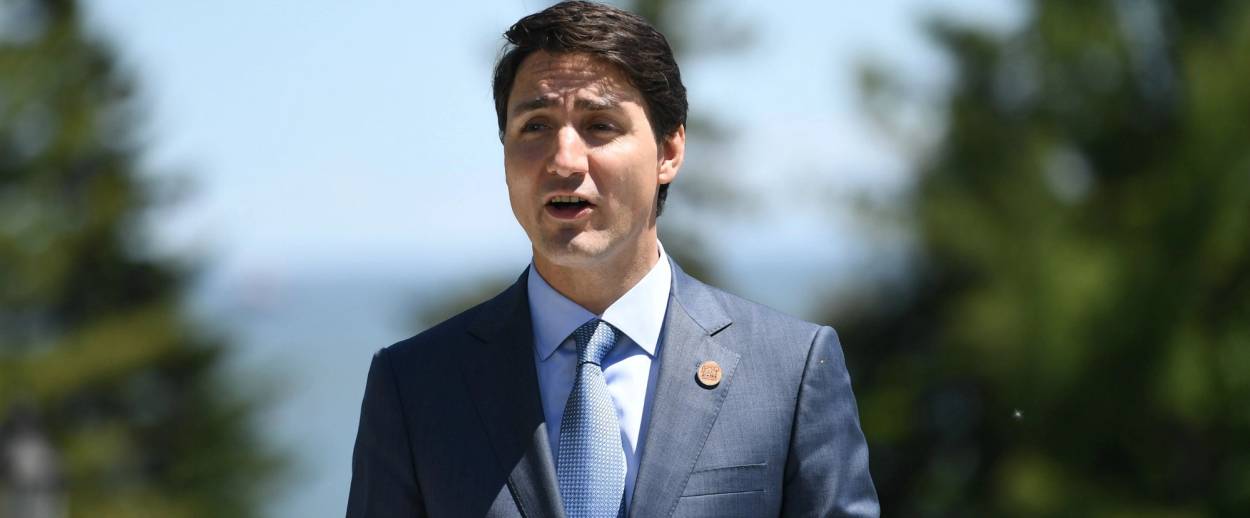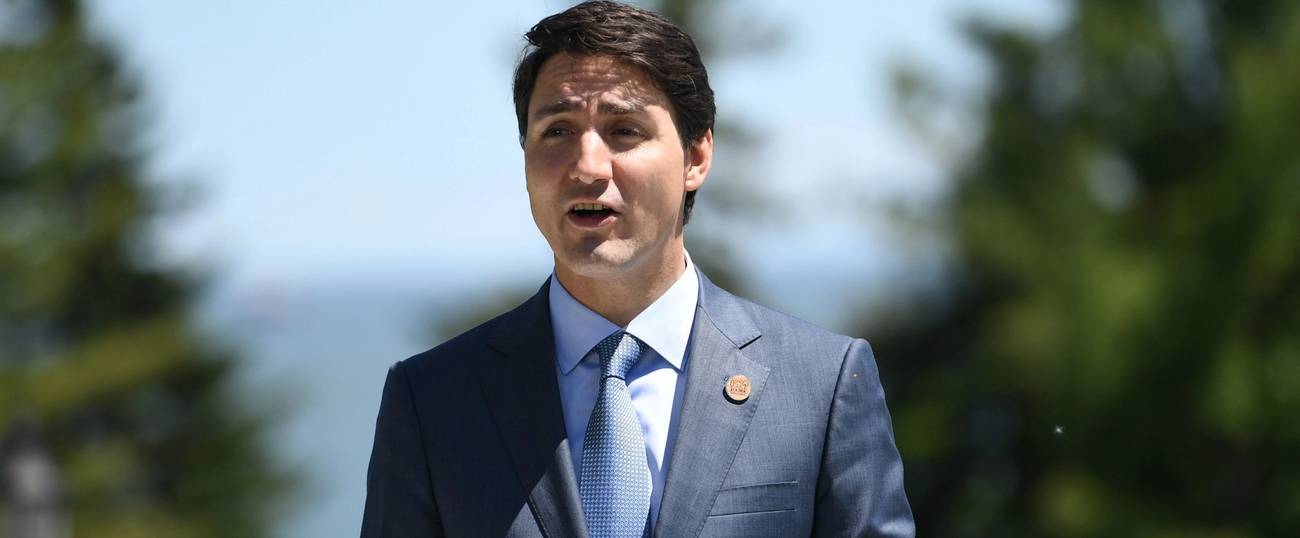If you were keeping score in the escalating diplomatic row between Canada and Saudi Arabia, you’d have to give the advantage so far to the Saudis.
Ever since a Canadian official first tweeted criticism of Saudi human-rights abuses last Friday the kingdom has responded with a series of overblown reprisals and heavy-handed threats. Canada’s ambassador was booted from Riyadh and the Saudi envoy withdrawn from his post. Trade and investment were frozen, and 16,000 Saudi students have had their scholarships revoked and may be moved out of the country, among other retaliatory measures. Despite all the bluster the moves so far have been largely symbolic. Saudi medical patients aren’t very high stakes bargaining chips but by pulling them out of Canadian hospitals Riyadh gets headlines to publicize its intransigence.
It all started last week with a tweet. First, Amnesty International reported the Saudi government’s arrest of several prominent female human rights activists, a move the organization described as “further proof of a crackdown that shows no sign of relenting.” A few days later, Canadian Minister of Foreign Affairs Chrystia Freeland tweeted: “Very alarmed to learn that Samar Badawi, Raif Badawi’s sister, has been imprisoned in Saudi Arabia. Canada stands together with the Badawi family in this difficult time, and we continue to strongly call for the release of both Raif and Samar Badawi.”
The Badawis are prominent Saudi dissidents. Raif Badawi, known for blogging critically about religion and the Saudi government, was arrested in 2014 and publicly flogged for the crime of apostasy in 2015. A little more than a week ago Raif’s sister, Samar Badawi was arrested along with another female human rights activist, prompting Freeland’s response. Shortly after, Global Affairs Canada, an official government account, tweeted, “Canada is gravely concerned about additional arrests of civil society and women’s rights activists in #SaudiArabia.” And with that hashtag, Riyadh went into overdrive leading an organized effort to punish the Canadians and prove a point.
But why? Why would Saudi Arabia, a chronic human rights abuser, routinely criticized for its repressive politics respond so vehemently to this particular tweet—why now? Certainly, it’s connected to the country’s new ruling regime led by the young prince and heir apparent, Mohammed bin Salman. Crown Prince Mohammed, 32, has spent the past year on a charm offensive, presenting himself to Western audiences as a modernizer and reformer whose country is the key to countering an expansionist Iranian military power in the Middle East. He’s also led a major crackdown at home, including mass arrests of domestic rivals and increased repression of political dissidents, and a brutal, ongoing war in Yemen. In the backdrop, he’s concluded major arms deals with Canada and the U.S.
It appears the crown prince wants to make a point about other countries, particularly those with which Riyadh enjoys substantial trade and economic ties, keeping out of internal Saudi affairs.
Opening with the counter hashtag “statement” the Saudi Foreign Ministry responded to Canada on its own official Twitter account:
#Statement The Canadian position is an overt and blatant interference in the internal affairs of the Kingdom of #SaudiArabia and is in contravention of the most basic international norms and all the charters governing relations between States.
Government-affiliated Saudi news outlets hammered the point home, warning Canada about the risks of taking Riyadh lightly. An editorial in the state aligned Saudi newspaper Arab News titled “There is much at risk for Canada,” warns “Canada would be well advised to consider its next steps carefully; more often than not, a rift with the Kingdom is usually hard to fix. The potential consequences of it may not only harm future investment and large-scale trade, but also carry the real risk of upsetting the entire Muslim and Arab worlds.” That’s tame compared to the tweet from a pro-government Saudi youth agency that showed a plane flying towards a building below the caption “he who interferes with what doesn’t concern him finds what doesn’t please him.” The threat was later redacted and an apology issued but by then the point had been made.
The real point though isn’t a dictatorship’s ability to whip up a bellicose messaging campaign and engage in tinpot thumping. Nor is it the particular brutality of the Saudi political machine. What’s significant is how much or how little those well-established facts matter in a rapidly changing global arena.
The Candian’s ministry’s exercise of conscience may look a bit lopsided alongside Ottawa’s $15 billion arms deal with Riyadh but it is not meaningless. It’s a public affirmation of an international human rights regime that may have never been very solid but now appears to be crumbling rapidly. That regime effectively announced to human rights abusers, ‘while we may continue to do business with you on other matters’ we will pressure you to move towards a liberal standard of tolerance towards dissidents and minorities—or at least to be less brutally repressive.” Not a very high standard and yet, at the moment, you could hear a phone ring down the block listening for it to be affirmed by a Western state.
Canadian leader Justin Trudeau has backed up his minister’s statement but his position seems to be holding the line while avoiding escalation. It’s not clear how Canada gets out of this, then, short of biding time and waiting until the Saudi’s feel they’ve made their point and Crown Prince Mohammed’s temper passes. “They want to make an example of us and therefore we would have to do an awful lot of groveling and apologizing, I think, to get the Saudis to end it,” Rex Brynen, a political science professor at McGill University who specializes in the Middle East, told the CBC.
The upshot of taking a principled stand is that Canada is standing by its lonesome. The Trump administration has kept its distance, getting involved only to play the referee between the absolute monarchy, Saudi Arabia, and NATO ally Canada. “Both sides need to diplomatically resolve this together,” State Department spokeswoman Heather Nauert told the press on Tuesday. “We can’t do it for them; they need to resolve it together.” Europe has largely stayed out of the fray as well.
On the other hand, Egypt, Bahrain, the United Arab Emirates and the president of the Palestinian Authority have all expressed support for Saudi Arabia. Russia suggested Wednesday that Canada was at fault for sticking its nose where it doesn’t belong. “We have always said that the politicization of human-rights matters is unacceptable,” Russian Foreign Ministry spokeswoman Maria Zakharova said in a statement. Adding, “We believe that Saudi Arabia, having embarked on a path of large-scale social and economic reforms, fully has the sovereign right to decide how to move forward in this important area.”
So it’s hard to see this as anything but a win for the Saudis. Maybe there are real countermeasures coming down the line but so far it’s Saudi Arabia with all the friends, the U.S. and Europe whistling with their backs turned, and Canada isolated but sticking to its guns. Guns in this instance being a euphemism for tweets.
What do you think of when you hear the phrase “drain the swamp?” Donald Trump and the 2016 campaign; a flock of red MAGA hats chanting in front of a stage, cheering on their hero’s promise to throw the bums out of D.C. I imagine that’s what comes to mind for most people, but I recall something different. When I hear “drain the swamp” I think of George W. Bush and the days after the al-Qaeda terrorist attacks of 2001.
The phrase meant something very different then. It referred to the idea that jihadist terror groups like al-Qaeda committed to attacking America were fostered by corrupt Middle Eastern dictatorships with whom the U.S. had often allied. The swamp was the repressive, stifling conditions in Middle Eastern states. Drain it and those countries would stop producing terrorists. (Saudi Arabia was never on the list because its autocratic rulers, while repressive at home, were seen as stable, key trading partners and cooperative with U.S. foreign policy.)
All that was necessary was to invade those societies of the Middle East captured by repressive states and liberate them. Once the societies were freed democracy would flower. That was always a useful myth to some people but it called on the very real universal human desire to be free of tyranny, so many others believed in it, including for a time, me.
That was the old way of doing things. It legitimized the exercise of power by using the rhetoric and framework of human rights and democracy. Not that anyone ever mistook the Kingdom of Saudi Arabia for a human-rights-respecting democracy but the rhetoric counted for something.
It would seem we have entered a new world with new swamps to be drained. And it is not at all clear that President Trump, who presided over a sale of weapons to the Saudis worth tens of billions when he hosted Crown Prince Mohammed last year, and who sees Saudi Arabia as crucial for containing Iranian expansion in the Middle East, gives a damn about pretending that relations with the Saudi Kingdom depend on democracy promotion, human rights or anything else of the sort.

